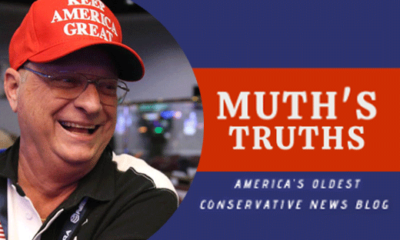
Image by Steve Buissinne from Pixabay
(Alan Krawitz) – A recent report by the Washington D.C.-based Tax Foundation showed that while wireless taxes and fees continued to climb this year, Nevada residents pay among the lowest wireless taxes in the country.
The report, titled “Wireless Taxes and Fees Jump Sharply in 2019,” said that typical American households with four wireless phones paying $100 per month for taxable wireless service can expect to pay about $260 per year in taxes, fees, and surcharges – up from $229 in 2018.
Wireless consumers, according to the foundation, pay about $12.0 billion in taxes and fees that are specifically levied on telecommunications services but not on other taxable goods and services.
That total includes about $5.9 billion in Federal Universal Fund (FUSF) charges, $3.2 billion in 911 fees, and another $2.9 billion in other state and local taxes, fees, and government surcharges. The remaining $5.1 billion in taxes on wireless service are sales and use taxes that are imposed on other taxable goods and services.
Yet in Nevada, residents paid the third lowest combined federal, state and local taxes on wireless service in the country.
“Nevada’s tax on wireless services is among the lowest because wireless services are not included in Nevada’s sales tax base,” said Ulrik Boesen, a senior policy analyst who specializes in excise taxes for the Tax Foundation.
“There are other states that do not levy sales tax on wireless services, but several of these have instead enacted special communications taxes to generate revenue,” he added. “Fortunately, Nevada has not done so, which keeps the rate low allowing consumers to access wireless services at competitive prices.”
Most of the increase in wireless taxes, according to the Tax Foundation, is due to a very large (36 percent) increase in the Federal Universal Service Fund “contribution rate.” Wireless carriers are required to pay this surcharge on all charges for interstate telephone service.
The FUSF, according to the report, is overseen by the Federal Communications Commission (FCC) under authority from Congress. The program subsidizes telecommunications services for schools, libraries, hospitals, low-income people, and rural telephone companies operating in high-cost areas. The FCC has also recently decided to use funds to fund broadband deployment.
In addition, the FCC reports that some states and localities regularly divert 911 fees for uses other than emergency systems.
The commission said the City of Chicago used the authority granted by the legislature to increase its 911 fee from $3.90 per line to $5.00 per line, effective January 1, 2018. Media reports said that the 911 fee increase was intended to cover a shortfall in city pension obligations.
The FCC also identified other states (Montana, New Jersey, New York, Rhode Island, and West Virginia) that have diverted 911 fees paid by wireless consumers to other purposes.
Overall, the Tax Foundation report states that nationally, the rates “make up about 21.7 percent of the average customer’s bill — the highest rate ever. Illinois has the highest wireless taxes in the country at 31.2 percent, followed by Washington at 28.8 percent, Nebraska at 28.1 percent, New York at 27.7 percent, and Utah at 25.6 percent.”
The Tax Foundation report concluded that “wireless consumers continue to be burdened with high taxes, fees, and surcharges in many states and localities across the United States.”
It says that with state and local governments continuing to face revenue shortfalls, wireless industry customers continue to be an “attractive target for raising new revenues.”
The foundation warns that “excessive taxes on wireless consumers disproportionately impacts poorer families and may have ramifications for long-term state economic development and growth.”
Moreover, the report says that “Higher taxes on wireless service, coupled with increased taxes on wireless investments, may lead to slower deployment of wireless network infrastructure, including fifth generation (5G) wireless broadband technologies–a key element to the future success of Smart Cities, which are cities that utilize wireless communication tools to improve quality of life for its citizens.”
By
Alan Krawitz | The Center Square






Facebook
Twitter
Pinterest
RSS